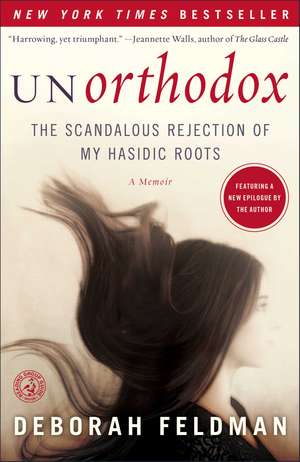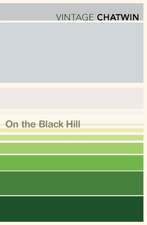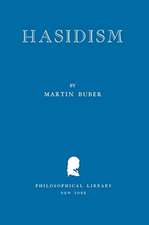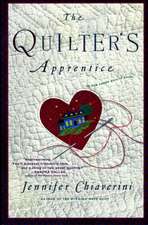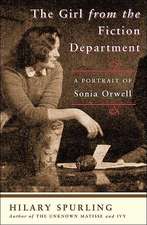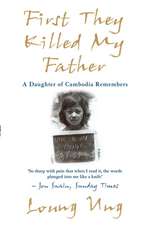Unorthodox: The Scandalous Rejection of My Hasidic Roots: Books to TV Adaptations
Autor Deborah Feldmanen Limba Engleză Paperback – 6 sep 2018
Unorthodox is the bestselling memoir of a young Jewish woman’s escape from a religious sect, in the tradition of Ayaan Hirsi Ali’s Infidel and Carolyn Jessop’s Escape, featuring a new epilogue by the author.
As a member of the strictly religious Satmar sect of Hasidic Judaism, Deborah Feldman grew up under a code of relentlessly enforced customs governing everything from what she could wear and to whom she could speak to what she was allowed to read. Yet in spite of her repressive upbringing, Deborah grew into an independent-minded young woman whose stolen moments reading about the empowered literary characters of Jane Austen and Louisa May Alcott helped her to imagine an alternative way of life among the skyscrapers of Manhattan. Trapped as a teenager in a sexually and emotionally dysfunctional marriage to a man she barely knew, the tension between Deborah’s desires and her responsibilities as a good Satmar girl grew more explosive until she gave birth at nineteen and realized that, regardless of the obstacles, she would have to forge a path—for herself and her son—to happiness and freedom.
Remarkable and fascinating, this “sensitive and memorable coming-of-age story” (Pittsburgh Post-Gazette) is one you won’t be able to put down.
| Toate formatele și edițiile | Preț | Express |
|---|---|---|
| Paperback (2) | 55.78 lei 25-37 zile | |
| Simon&Schuster – 6 sep 2018 | 55.78 lei 25-37 zile | |
| Simon&Schuster – 18 mar 2020 | 69.66 lei 3-5 săpt. | +9.21 lei 4-10 zile |
Din seria Books to TV Adaptations
- NaN%
 Preț: 65.69 lei
Preț: 65.69 lei - 22%
 Preț: 46.04 lei
Preț: 46.04 lei -
 Preț: 225.10 lei
Preț: 225.10 lei - 20%
 Preț: 46.02 lei
Preț: 46.02 lei - 15%
 Preț: 49.14 lei
Preț: 49.14 lei - 13%
 Preț: 56.02 lei
Preț: 56.02 lei - 23%
 Preț: 64.35 lei
Preț: 64.35 lei - 22%
 Preț: 45.01 lei
Preț: 45.01 lei - 15%
 Preț: 48.79 lei
Preț: 48.79 lei - 23%
 Preț: 48.95 lei
Preț: 48.95 lei - 17%
 Preț: 57.97 lei
Preț: 57.97 lei - NaN%
 Preț: 64.48 lei
Preț: 64.48 lei - 19%
 Preț: 405.18 lei
Preț: 405.18 lei - 24%
 Preț: 43.50 lei
Preț: 43.50 lei - NaN%
 Preț: 43.45 lei
Preț: 43.45 lei -
 Preț: 116.47 lei
Preț: 116.47 lei -
 Preț: 60.19 lei
Preț: 60.19 lei -
 Preț: 59.05 lei
Preț: 59.05 lei -
 Preț: 57.54 lei
Preț: 57.54 lei - 14%
 Preț: 50.21 lei
Preț: 50.21 lei -
 Preț: 65.28 lei
Preț: 65.28 lei - 14%
 Preț: 56.23 lei
Preț: 56.23 lei - 16%
 Preț: 48.54 lei
Preț: 48.54 lei - 18%
 Preț: 47.29 lei
Preț: 47.29 lei - 8%
 Preț: 487.53 lei
Preț: 487.53 lei - NaN%
 Preț: 99.83 lei
Preț: 99.83 lei -
 Preț: 48.84 lei
Preț: 48.84 lei -
 Preț: 74.79 lei
Preț: 74.79 lei -
 Preț: 60.65 lei
Preț: 60.65 lei -
 Preț: 64.30 lei
Preț: 64.30 lei - 22%
 Preț: 50.68 lei
Preț: 50.68 lei -
 Preț: 72.23 lei
Preț: 72.23 lei - NaN%
 Preț: 61.85 lei
Preț: 61.85 lei - 24%
 Preț: 48.42 lei
Preț: 48.42 lei -
 Preț: 59.41 lei
Preț: 59.41 lei -
 Preț: 59.75 lei
Preț: 59.75 lei - 16%
 Preț: 53.69 lei
Preț: 53.69 lei -
 Preț: 77.35 lei
Preț: 77.35 lei - 15%
 Preț: 65.07 lei
Preț: 65.07 lei - NaN%
 Preț: 55.80 lei
Preț: 55.80 lei - 14%
 Preț: 44.24 lei
Preț: 44.24 lei - NaN%
 Preț: 270.07 lei
Preț: 270.07 lei - 16%
 Preț: 69.60 lei
Preț: 69.60 lei - 14%
 Preț: 56.55 lei
Preț: 56.55 lei -
 Preț: 50.61 lei
Preț: 50.61 lei - 22%
 Preț: 45.81 lei
Preț: 45.81 lei -
 Preț: 64.20 lei
Preț: 64.20 lei
Preț: 55.78 lei
Preț vechi: 95.59 lei
-42% Nou
10.67€ • 11.08$ • 8.92£
Carte disponibilă
Livrare economică 28 februarie-12 martie
Specificații
ISBN-10: 1439187010
Pagini: 272
Ilustrații: 12 b-w photos throughout
Dimensiuni: 140 x 213 x 15 mm
Greutate: 0.23 kg
Editura: Simon&Schuster
Colecția Simon & Schuster
Seria Books to TV Adaptations
Notă biografică
Deborah Feldman was raised in the Satmar Hasidic community in the Williamsburg section of Brooklyn, New York. She lives in Berlin with her son.
Recenzii
— The Huffington Post
“A sensitive and memorable coming-of-age story... Imagine Frank McCourt as a Jewish virgin, and you've got Unorthodox in a nutshell.”
— Pittsburgh Post-Gazette
“Compulsively readable, Unorthodox relates a unique coming-of-age story that manages to speak personally to anyone who has ever felt like an outsider in her own life.”
— School Library Journal
“It's one of those books you can't put down.”
— Joan Rivers, in The New York Post
“An unprecedented view into a Hasidic community that few outsiders ever experience.”
— Minneapolis Star-Tribune
“[Feldman’s] matter-of-fact style masks some penetrating insights.”
— The New York Times
“Riveting... extraordinary.”
— Marie Claire
Descriere
Now a Netflix original series!
Unorthodox is the bestselling memoir of a young Jewish woman’s escape from a religious sect, in the tradition of Ayaan Hirsi Ali’s Infidel and Carolyn Jessop’s Escape, featuring a new epilogue by the author.
As a member of the strictly religious Satmar sect of Hasidic Judaism, Deborah Feldman grew up under a code of relentlessly enforced customs governing everything from what she could wear and to whom she could speak to what she was allowed to read. Yet in spite of her repressive upbringing, Deborah grew into an independent-minded young woman whose stolen moments reading about the empowered literary characters of Jane Austen and Louisa May Alcott helped her to imagine an alternative way of life among the skyscrapers of Manhattan. Trapped as a teenager in a sexually and emotionally dysfunctional marriage to a man she barely knew, the tension between Deborah’s desires and her responsibilities as a good Satmar girl grew more explosive until she gave birth at nineteen and realized that, regardless of the obstacles, she would have to forge a path—for herself and her son—to happiness and freedom.
Remarkable and fascinating, this “sensitive and memorable coming-of-age story” (Pittsburgh Post-Gazette) is one you won’t be able to put down.
Extras
Prologue
On the eve of my twenty-fourth birthday I interview my mother. We meet at a vegetarian restaurant in Manhattan, one that announces itself as organic and farm-fresh, and despite my recent penchant for all things pork and shellfish, I am looking forward to the simplicity the meal promises. The waiter who serves us is conspicuously gentile-looking, with scruffy blond hair and big blue eyes. He treats us like royalty because we are on the Upper East Side and are prepared to shell out a hundred bucks for a lunch consisting largely of vegetables. I think it is ironic that he doesn’t know that the two of us are outsiders, that he automatically takes our existence for granted. I never thought this day would come.
Before we met, I told my mother that I had some questions for her. Although we’ve spent more time together over the past year than we did in all my teenage years put together, thus far I’ve mostly avoided talking about the past. Perhaps I did not want to know. Maybe I didn’t want to find out that whatever information had been fed to me about my mother was wrong, or maybe I didn’t want to accept that it was right. Still, publishing my life story calls for scrupulous honesty, and not just my own.
A year ago to this date I left the Hasidic community for good. I am twenty-four and I still have my whole life ahead of me. My son’s future is chock-full of possibilities. I feel as if I have made it to the starting line of a race just in time to hear the gun go off. Looking at my mother, I understand that there might be similarities between us, but the differences are more glaringly obvious. She was older when she left, and she didn’t take me with her. Her journey speaks more of a struggle for security than happiness. Our dreams hover above us like clouds, and mine seem bigger and fluffier than her wispy strip of cirrus high in a winter sky.
As far back as I can remember, I have always wanted everything from life, everything it can possibly give me. This desire separates me from people who are willing to settle for less. I cannot even comprehend how people’s desires can be small, their ambitions narrow and limited, when the possibilities are so endless. I do not know my mother well enough to understand her dreams; for all I know, they seem big and important to her, and I want to respect that. Surely, for all our differences, there is that thread of common ground, that choice we both made for the better.
My mother was born and raised in a German Jewish community in England. While her family was religious, they were not Hasidic. A child of divorce, she describes her young self as troubled, awkward, and unhappy. Her chances of marrying, let alone marrying well, were slim, she tells me. The waiter puts a plate of polenta fries and some black beans in front of her, and she shoves her fork in a fry.
When the choice of marrying my father came along, it seemed like a dream, she says between bites. His family was wealthy, and they were desperate to marry him off. He had siblings waiting for him to get engaged so that they could start their own lives. He was twenty-four, unthinkably old for a good Jewish boy, too old to be single. The older they get, the less likely they are to be married off. Rachel, my mother, was my father’s last shot.
Everyone in my mother’s life was thrilled for her, she remembers. She would get to go to America! They were offering a beautiful, brand-new apartment, fully furnished. They offered to pay for everything. She would receive beautiful clothes and jewelry. There were many sisters-in-law who were excited to become her friends.
“So they were nice to you?” I ask, referring to my aunts and uncles, who, I remember, mostly looked down on me for reasons I could never fully grasp.
“In the beginning, yes,” she says. “I was the new toy from England, you know. The thin, pretty girl with the funny accent.”
She saved them all, the younger ones. They were spared the fate of getting older in their singlehood. In the beginning, they were grateful to see their brother married off.
“I made him into a mensch,” my mother tells me. “I made sure he always looked neat. He couldn’t take care of himself, but I did. I made him look better; they didn’t have to be so ashamed of him anymore.”
Shame is all I can recall of my feelings for my father. When I knew him, he was always shabby and dirty, and his behavior was childlike and inappropriate.
“What do you think of my father now?” I ask. “What do you think is wrong with him?”
“Oh, I don’t know. Delusional, I suppose. Mentally ill.”
“Really? You think it’s all that? You don’t think he was just plain mentally retarded?”
“Well, he saw a psychiatrist once after we were married, and the psychiatrist told me he was pretty sure your father had some sort of personality disorder, but there was no way to tell, because your father refused to cooperate with further testing and never went back for treatment.”
“Well, I don’t know,” I say thoughtfully. “Aunt Chaya told me once that he was diagnosed as a child, with retardation. She said his IQ was sixty-six. There’s not much you can do about that.”
“They didn’t even try, though,” my mother insists. “They could have gotten him some treatment.”
I nod. “So in the beginning, they were nice to you. But what happened after?” I remember my aunts talking about my mother behind her back, saying hateful things.
“Well, after the fuss calmed down, they started to ignore me. They would do things and leave me out of it. They looked down on me because I was from a poor family, and they had all married money and come from money and they lived different lives. Your father couldn’t earn any money, and neither could I, so your grandfather supported us. But he was stingy, counting out the bare minimum for groceries. He was very smart, your zeide, but he didn’t understand people. He was out of touch with reality.”
I still feel a little sting when someone says something bad about my family, as if I have to defend them.
“Your bubbe, on the other hand, she had respect for me, I could tell. No one ever listened to her, and certainly she was more intelligent and open-minded than anyone gave her credit for.”
“Oh, I agree with that!” I’m thrilled to find we have some common ground, one family member whom we both see the same way. “She was like that to me too; she respected me even when everyone else thought I was just troublesome.”
“Yes, well . . . she had no power, though.”
“True.”
So in the end she had nothing to cling to, my mother. No husband, no family, no home. In college, she would exist, would have purpose, direction. You leave when there’s nothing left to stay for; you go where you can be useful, where people accept you.
The waiter comes to the table holding a chocolate brownie with a candle stuck in it. “Happy birthday to you . . . ,” he sings softly, meeting my eyes for a second. I look down, feeling my cheeks redden.
“Blow out the candle,” my mother urges, taking out her camera. I want to laugh. I bet the waiter thinks that I’m just like every other birthday girl going out with her mom, and that we do this every year. Would anyone guess that my mother missed most of my birthdays growing up? How can she be so quick to jump back into things? Does it feel natural to her? It certainly doesn’t feel that way to me.
After both of us have devoured the brownie, she pauses and wipes her mouth. She says that she wanted to take me with her, but she couldn’t. She had no money. My father’s family threatened to make her life miserable if she tried to take me away. Chaya, the oldest aunt, was the worst, she says. “I would visit you and she would treat me like garbage, like I wasn’t your mother, had never given birth to you. Who gave her the right, when she wasn’t even blood?” Chaya married the family’s oldest son and immediately took control of everything, my mother recalls. She always had to be the boss, arranging everything, asserting her opinions everywhere.
And when my mother left my father for good, Chaya took control of me too. She decided that I would live with my grandparents, that I would go to Satmar school, that I would marry a good Satmar boy from a religious family. It was Chaya who, in the end, taught me to take control of my own life, to become iron-fisted like she was, and not let anyone else force me to be unhappy.
It was Chaya who convinced Zeidy to talk to the matchmaker, I learned, even though I had only just turned seventeen. In essence, she was my matchmaker; she was the one who decided to whom I was to be married. I’d like to hold her responsible for everything I went through as a result, but I am too wise for that. I know the way of our world, and the way people get swept along in the powerful current of our age-old traditions.
August 2010
New York City
